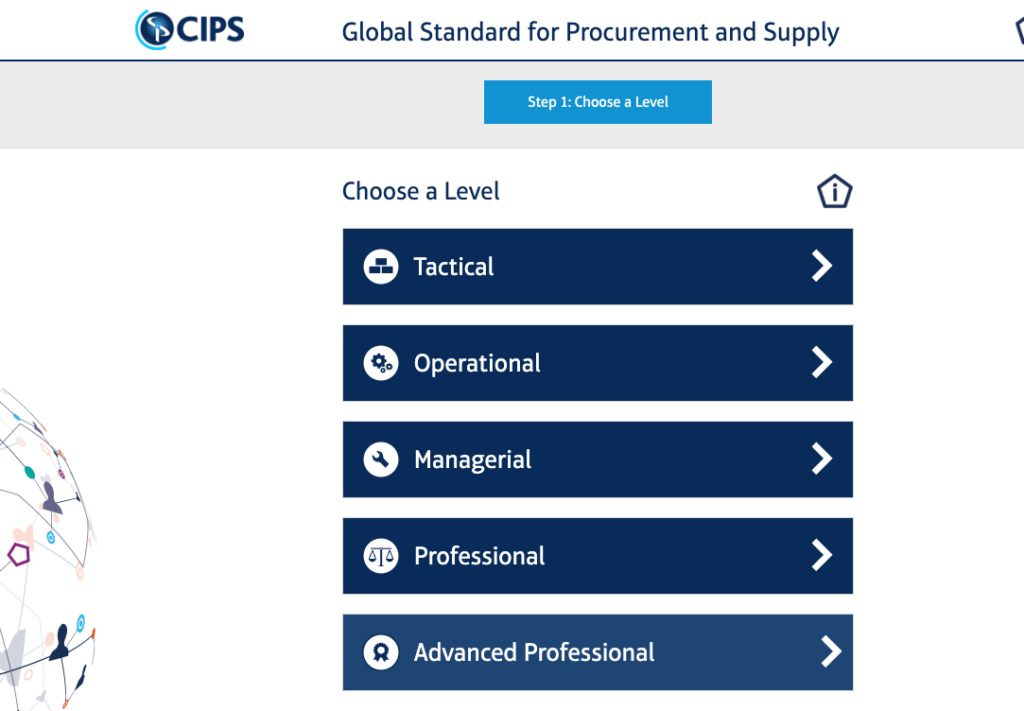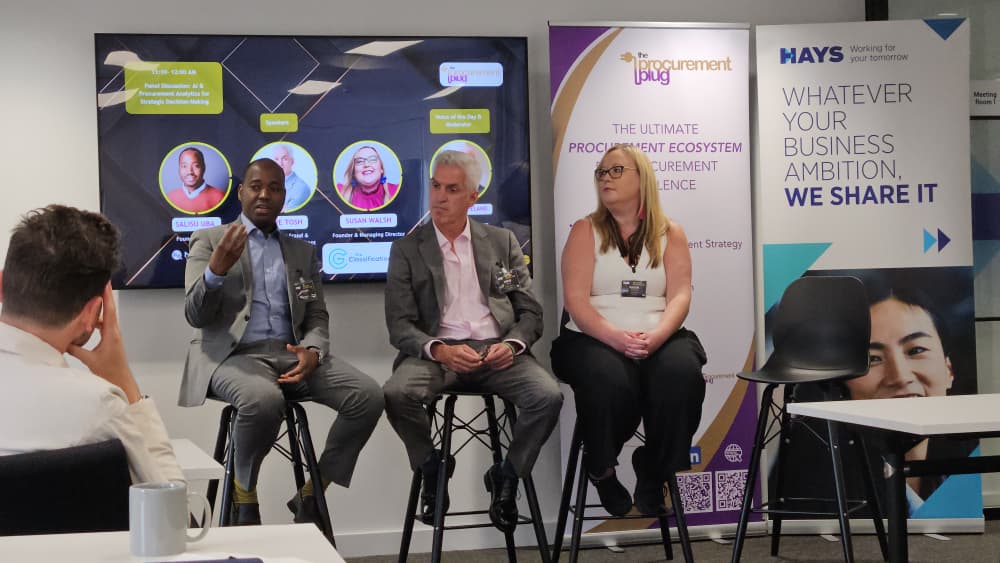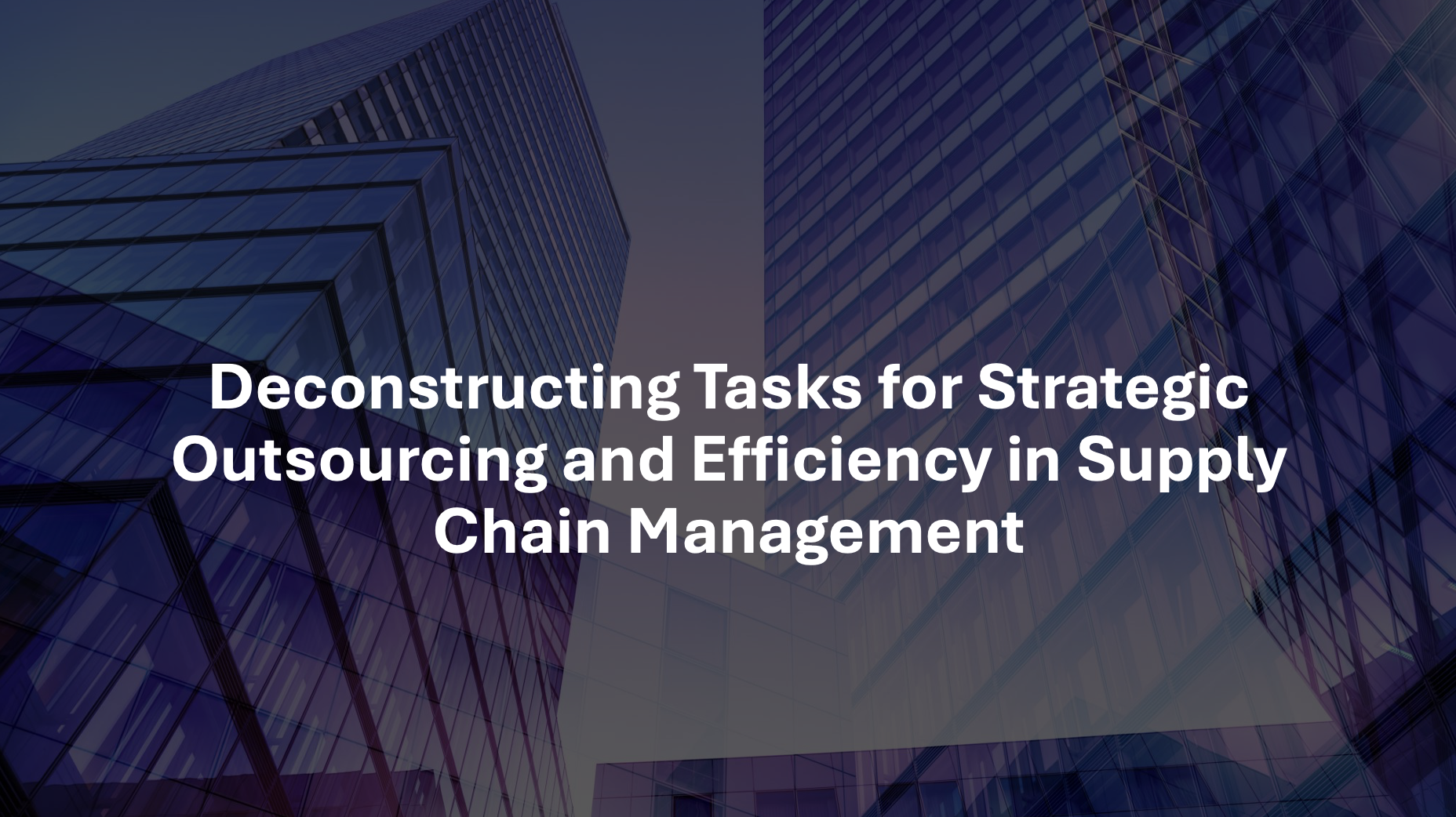The CIPS Global Standard for Procurement and Supply is widely acknowledged as the definitive framework for professional excellence. It has consistently directed our profession, developing capabilities and careers across diverse global markets. Yet, the business landscape is undergoing an unparalleled transformation, driven by the rapid rise of Artificial Intelligence. AI is not merely an incremental technology; it represents a fundamental paradigm shift. To maintain its relevance and leadership, the Global Standard must now thoroughly integrate AI into its core principles.

Figure from the CIPS Website
Beyond Automation: AI as a Strategic Imperative
For decades, procurement’s focus has been on managing risk, securing value, and enhancing efficiency. While digital tools like Enterprise Resource Planning (ERP) and Purchase-to-Pay (P2P) systems have brought structure and pace, AI offers something far more profound: it enables us to operate more intelligently. It redefines what is attainable, fundamentally reshaping digital transformation initiatives and the very nature of work within our domain.
Digital transformation, traditionally understood as automating manual tasks and digitising records, is now being significantly advanced by AI. Consider market intelligence: AI can rapidly process vast global datasets, identifying subtle shifts in demand, pinpointing emerging geopolitical risks, and even forecasting commodity price volatility with notable accuracy. This is not just data analysis; it’s predictive insight, delivered at a scale and speed unattainable by human teams alone. It shifts procurement leaders from a reactive stance to a proactive, guiding role, enabling us to manage complex challenges rather than merely responding to them.
Reshaping the Procurement Workforce
The common concern that AI will displace human roles often overlooks a critical distinction: AI replaces tasks, particularly those that are repetitive and high-volume. Robotic Process Automation (RPA) and machine learning algorithms are proficient at handling invoice processing, basic contract comparisons, and routine data entry. This evolution is not a threat, but a substantial opportunity. It frees our professionals from administrative burdens, allowing them to advance to more strategic advisory functions.
The future demands professionals capable of interpreting AI-driven insights, negotiating complex agreements informed by these insights, and effectively managing the underlying AI systems. The focus of work transitions from data input to intelligent insight, and from transactional processes to collaborative partnerships.
AI’s Transformative Impact Across Core Processes:
AI’s influence is already demonstrably profound across critical procurement processes:
- Spend Management: AI identifies anomalies, uncovers hidden savings opportunities, and optimises category strategies with a level of precision that surpasses human analytical capabilities.
- Contracting: AI accelerates contract drafting, identifies non-compliant terms, and monitors obligations in real-time, significantly reducing legal exposure and speeding up cycle times.
- Sourcing: AI-powered platforms can identify optimal suppliers, evaluate bids against dynamic multi-criteria frameworks, and even suggest superior negotiation strategies, transforming a manual search into an intelligent matching process.
- Risk Management: AI acts as a strong protective layer, detecting fraudulent patterns, predicting supplier failures, and modelling the potential impact of supply chain disruptions, facilitating prompt and informed mitigation. This transition from reactive damage control to proactive resilience is robust and essential.
Evolving Capabilities and Ethical Responsibilities
However, utilising AI demands a new form of proficiency from our profession. The “People Development” pillar of the Global Standard must evolve to prominently feature AI and Data Literacy. Procurement professionals must not only comprehend AI’s mechanisms but also learn how to critically assess its outputs and apply its insights ethically. This necessitates developing skills in areas such as prompt engineering, data visualisation, and the critical thinking required to validate AI-generated recommendations.
Crucially, it also demands a renewed emphasis on the uniquely human skills that AI cannot replicate: creativity, emotional intelligence, complex problem-solving, and the nuanced art of relationship building – all vital in an increasingly automated world. Furthermore, our ethical framework must adapt. The Standard must explicitly address the ethical implications of AI in procurement, including algorithmic bias, data privacy, and the need for transparency in AI-driven decision-making, ensuring fairness and accountability throughout the supply chain.
The CIPS Global Standard has historically championed excellence. In today’s dynamic environment, excellence is inherently linked to harnessing AI effectively and ethically. It means equipping procurement professionals not just to navigate, but to lead and thrive in this new era. It is about ensuring that procurement, augmented by AI, remains an indispensable driver of value, resilience, and competitive advantage for organisations globally. The time for discussion has passed. The time for decisive integration of AI into the very core of our professional Standard is now. Our collective future depends on it.
Dr Salisu Uba, FCIPS, is a fellow of CIPS, contributor to the Global Standard for Procurement and Supply
He is also the CEO of NatQuest, Adjunct Assistant Professor at the University of Strathclyde, Glasgow, UK




